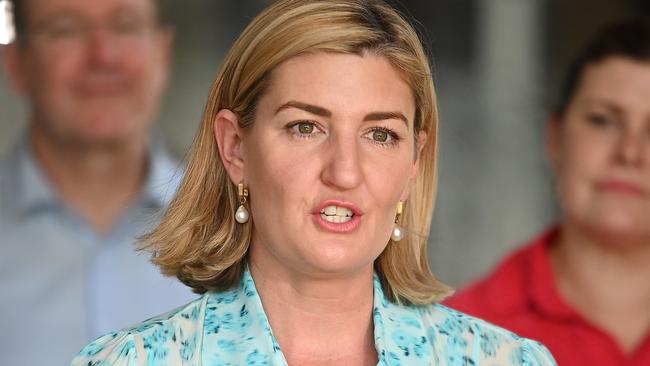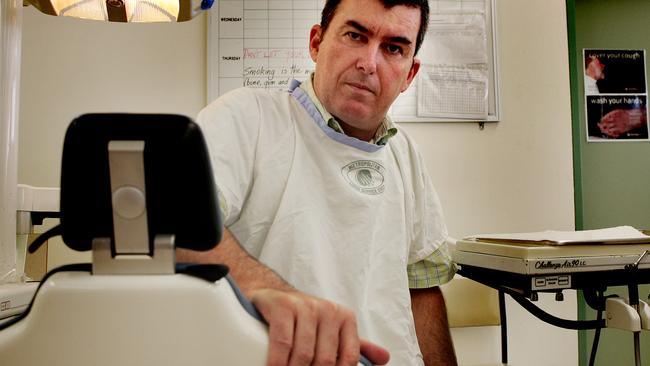Expert push for fluoride mandate to fight tooth decay
The state government must end the “lunacy” and mandate fluoride in Queensland’s water supply, a leading advocate of better dental health says, amid fears that a generation of regional and Indigenous residents will suffer.

QLD News
Don't miss out on the headlines from QLD News. Followed categories will be added to My News.
The state government must end the “lunacy” and mandate fluoride in Queensland’s water supply, a leading advocate of better dental health says, amid fears that a generation of regional and Indigenous residents will suffer.
Dentist Michael Foley, who was instrumental in then premier Anna Bligh’s 2007 decision to mandate fluoride in the state’s water supply, called for more Queenslanders to be given access to fluoride.
The decision was reversed in 2012 by then LNP premier Campbell Newman.
About 72 per cent of residents – mostly in South East Queensland – now have access to water fluoridation, which the National Health and Medical Research Council notes reduces tooth decay by 27-44 per cent.
Dr Foley is calling for the government to reintroduce fluoride, with some exceptions.

“Fluoridation is not appropriate or needed if decay levels are low – sadly, not an issue in Queensland – but also in communities that rely on bore water and don’t treat the water, communities where the water already contains beneficial levels of fluoride, or places like Nanango where the water tastes bad and very few people drink the town water,” he said.
Dr Foley said Indigenous communities were being significantly disadvantaged.
“Not a single one of our Aboriginal and Torres Strait Islander communities has water fluoridation, despite them having rampant tooth decay,” he said.
“It’s more difficult to promote fluoridation in remote communities, but most Aboriginal communities in the Northern Territory have water fluoridation so there’s no reason why communities in Queensland shouldn’t also.”
Dr Foley, who on Friday collected his PhD for research into the factors affecting a parent’s understanding of their child’s dental health, said most dental work was replacing old fillings after 15 to 20 years.
“Most crowns, bridges, dentures, root canal treatments and dental implants started out with tooth decay so if we can prevent some of the decay in a child, we prevent not just one filling, but a lifetime of dental treatment,” he said.
“We’re paying a fortune for dental treatment, some of which can be prevented very easily and cheaply.”
Health Minister Shannon Fentiman said the decision would remain with councils.
“Infrastructure and operational costs to support water fluoridation is significant and would require multi-government support,” she said.
“The percentage of Queenslanders in receipt of fluoridated water is around 72 per cent and I want to see that number climb … I am committed to working with the Minister for Water Glenn Butcher, local governments, and the ADAQ and AMAQ to understand how we can encourage and promote the uptake of this important public health initiative across the state.”
Mr Newman said he supported fluoridation but Ms Bligh had been “convinced … to ride roughshod over every community and every concern and make it mandatory”.
He said his decision was driven by “local empowerment and local decision making”, and argued that those against councils making the decision were “essentially anti-democratic”.



